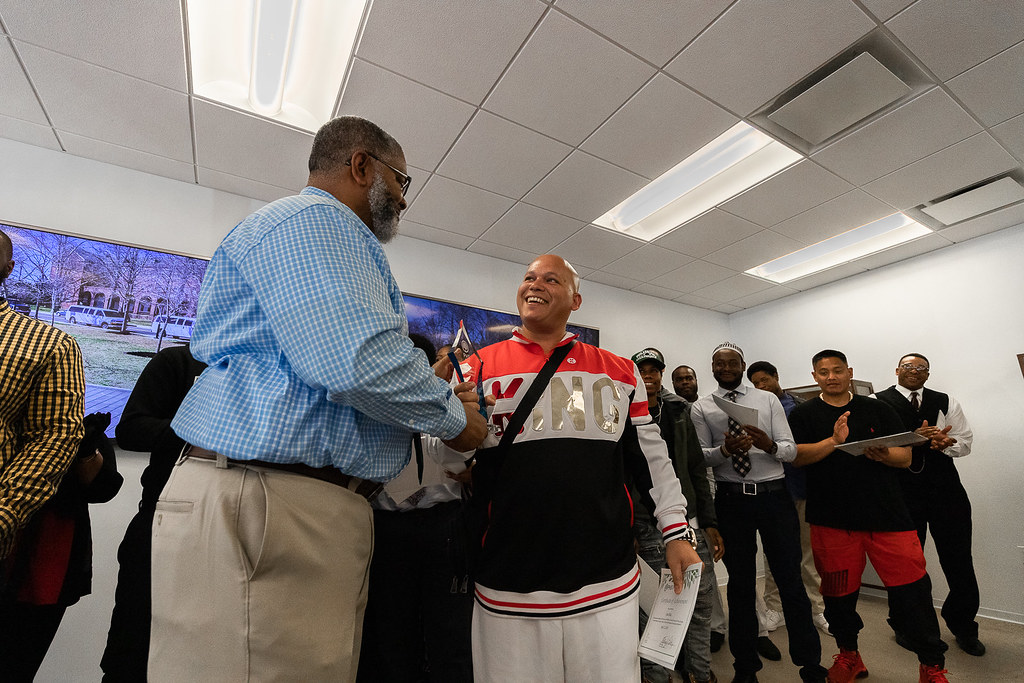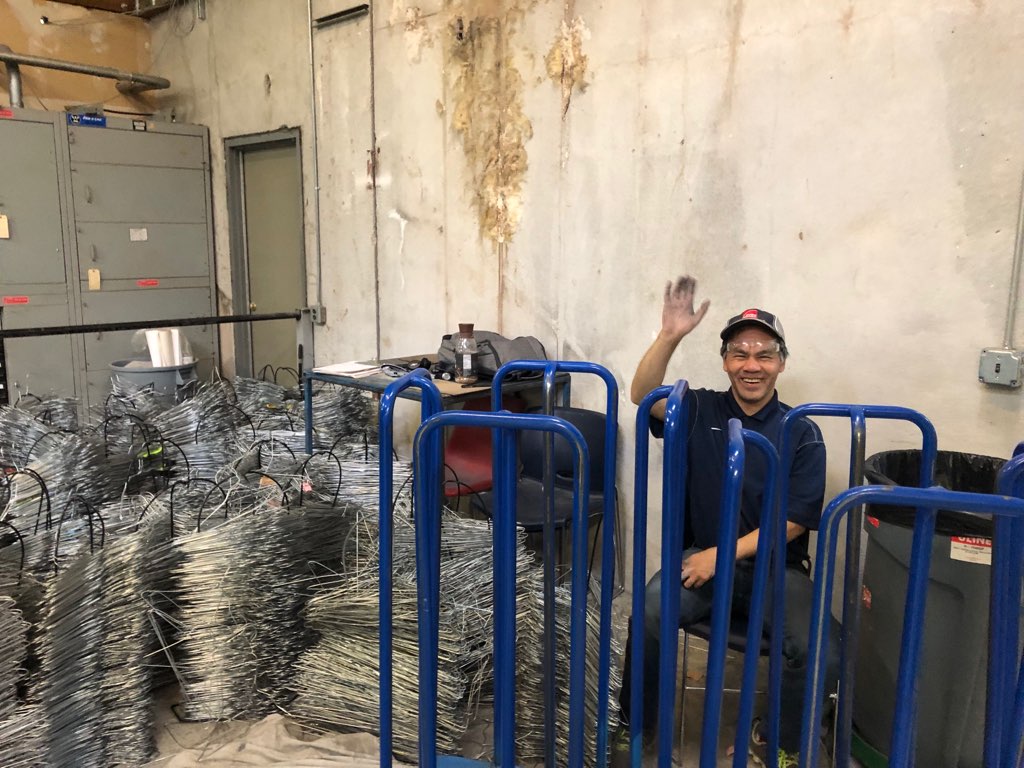Need Workers? Recruitment Benefits through Reentry & Vocational Programs for Manufacturers
By: Aimee Sukol, JD/MA/MS Ed
INTRODUCTION: Recruitment Struggles for Manufacturing
US manufacturers have struggled to find available workers for a decade or more. My series on recruitment and workforce development covered several plausible explanations for this trend. Among the trends, changes to the US economy after the 1970s that outsourced labor overseas and generational gaps between younger workers & the manufacturing industry. While local governments and schools have increasingly emphasized job training in trade industries, interest in manufacturing among younger job candidates remains weak.
Recruitment Changes Within the Industry
Some recruitment and benefits changed in response to labor shortages. Companies are increasing pay and covering tuition costs while others are working to change their company cultures. Tuition coverage may attract job seekers for higher-skilled positions while offering childcare or transportation vouchers may appeal to those filling entry-level positions. One thing that hasn’t been fully explored by economic development programs, however, is the use of full-spectrum DEI initiatives to find job seekers. The National Association of Manufacturers stated:
“Fortunately, the study found that diversity, equity and inclusion (DEI) initiatives exert a growing influence on workforce trends and can help manufacturers fill these empty jobs. Manufacturers have more work to do to attract larger numbers of women and diverse workers to the industry, and the Institute is leading an industry-wide effort to close the opportunity gap.”

Photo by: JARED PIPER / PHL COUNCIL
Prison Reentry & Vocational Training for IDD Job Seekers
Traditional job recruitment models have lost their efficacy among younger job seekers, yet companies continue to use them out of habit and perceived hassle involved with change. What is a hassle, however, is hiring someone from a garden variety job site only to find they don’t show up for the interview or work. On the other hand, alternative hiring models, such as prison reentry and intellectual/developmental vocational programs come with free facilitation, resources, and additional skill training that can produce short and long-term benefits.
Big Picture
First, it’s important to note that recommending alternative hiring models is not to suggest companies disregard their best interest. The point here is to consider Option B when Option A isn’t working, and at the same time, companies can also envision their community impact where people are given an economic opportunity and professional dignity. Prison reentry and vocational programs are vital to maintaining healthy communities.
Bottom-Line Benefits
- Alternative programs come with facilitated training and resources.
- Tax credits.
Prison Reentry: Facilitated Training and Bonus Resources
I have yet to meet a manufacturer who believes that formerly incarcerated people are un-hirable; however, I’ve yet to meet one who has partnered with a reentry program. There are a variety of prison reentry programs throughout Oregon that provide different levels and types of support. Those supports include accountability, counselors, ongoing job training, and soft skill training that most job candidates don’t have. Employers may find that second chance candidates are grateful for the opportunity to rejoin the community.
Several Oregon reentry programs include manufacturing, such as welding as part of their job training programs:
- Mercy Corps NW Coffee Creek
- Reentry services for formerly incarcerated women.
- Lifelong Information for Entrepreneurs (LIFE)
- Life skills training
- Job training in areas that include welding
- Vocational training
- Red Lodge Transition Services
- Transition services for Native American men and women
- Mentoring
- Behavioral Training
- Job Search Services
- Offices in Portland and Oregon City
- Sponsors Inc.
- Reentry Resource Center
- Provides vocational training in Lane County
- Clackamas County Reentry
- Reentry program located in Oregon City
- Provides peer mentoring and job training
- SE Works
- Several reentry programs that provide vocational support
- Skills training
- Located in Portland
Companies can use the links above to explore programs and learn more about partnerships. They may also find that their hiring efforts produce a broader community benefit and a strong public interest story worth sharing with fellow manufacturers.

Vocational job placement via Abilities at Work – Recruitment Strategies.
Disability Vocational Programs
Many job seekers with Intellectual/Developmental Disabilities (IDD) possess the physical and intellectual skills required in manufacturing. In fact, many neurodivergent job seekers, for example, Autism and Aspergers can be highly proficient in reading blueprints and interpreting data, and they use vocational assistance for workplace assimilation and coaching. They bring with them the support that traditional candidates don’t have.
How it Works
Job seekers with Intellectual and/or Developmental Disabilities are referred to vocational training programs usually through SSI. The organization works with the candidate to prepare them for the workforce through skills training, which can include soft skills in communication, learning how to use computers, and/or sitting through an interview. After the candidate has reached a level of comfort and competency, the organization identifies jobs in the community and works with the candidate on applying. After a candidate is hired, the organization’s job trainers participate in on-site training and serve as a liaison for the full duration of that job. IDD job seekers often work with the same employer for more than a decade where the vocational organization has been a resource the entire time. Organizations provide these services free of charge to both employers and job seekers and serve as excellent facilitators for workforce development.
The following are organizations that provide vocational training in the Portland Metro.
- Exceed Enterprises
- Abilities at Work
- Advocates for Life Skills
- Independence NW
- Alternative Services Oregon Inc.
As with prison reentry programs, hiring job seekers with disabilities can produce the short-term benefit of filling a job with the free assistance of an experienced partner and the long-term benefits of developing a reliable workforce that is consistently barred from self-sufficiency and dignity through work.
Tax Benefits
- The Work Opportunity Tax Credit (WOTC) is a Federal tax credit designed to incentivize employers to hire individuals who face barriers to employment. Qualifying individuals include some veterans, or simply those who have been unemployed for an extended period.
- Qualifying individuals move from economic dependency to self-sufficiency and become contributing members of their communities. Participating employers lower their cost of doing business through reduced federal income tax liability.
- Tax credits range from a minimum of $1,500 to a maximum of $9,600 PER HIRE.
- There is no limit to the number of WOTC qualifying individuals an employer can hire.
Myth vs. Fact regarding prison reentry programs:
“Each year, more than 700,000 individuals are released from state and federal prisons. Another 9 million cycle through local jails. When reentry fails, the social and economic costs are high ‐‐ more crime, more victims, more family distress, and more pressure on already‐strained state and municipal budgets. Because reentry intersects with health and housing, education and employment, family, faith, and community well‐being, many federal agencies are focusing on initiatives for the reentry population… Federal agencies are working together to enhance community safety and well‐ being, assist those returning from prison and jail in becoming productive citizens, and save taxpayer dollars by lowering the direct and collateral costs of incarceration. For more information about the Reentry Council, go to: www.nationalreentryresourcecenter.org/reentry‐council.“
WOTC also applies to disability vocational programs including the ones listed in the article.
Conclusion: Non-Traditional Job Seekers Can Thrive in Manufacturing
Manufacturers know how to re-imagine widgets, but when it comes to people they have largely relied on older models where work culture and hiring incentives frequently represent 20th-century interests. Today, younger workers want flexible schedules, remote work, and levels of input that can be incompatible with rote, time-sensitive production. Thus, the conversation around changing the trades altogether from a clock-in/clock-out model to “maker space” is massive and there is no question manufacturers are at generational and growth crossroads.
In the meantime…
Companies can continue operating traditional manufacturing workplaces as these shifts take place, but they must come to terms with their labor supply. For example, VHS players still work and anyone who wants to continue using them can find VHS tapes on the market. What doesn’t work is expecting Cloud streaming services on a VHS player and upon realizing these two things don’t go together, declaring VHS tapes don’t exist.
Manufacturing will have to undergo a cultural revolution to meet Gen Z and Millennial interests. This is not a fault, but it is a reality companies struggle to address. In the absence of significant changes, employers can find what they need through community partnerships representing struggling job candidates. There are people who can and will thrive in existing factory/manufacturing workplaces if employers and their hiring teams give them a chance.
See available positions at Meta Fab: Careers